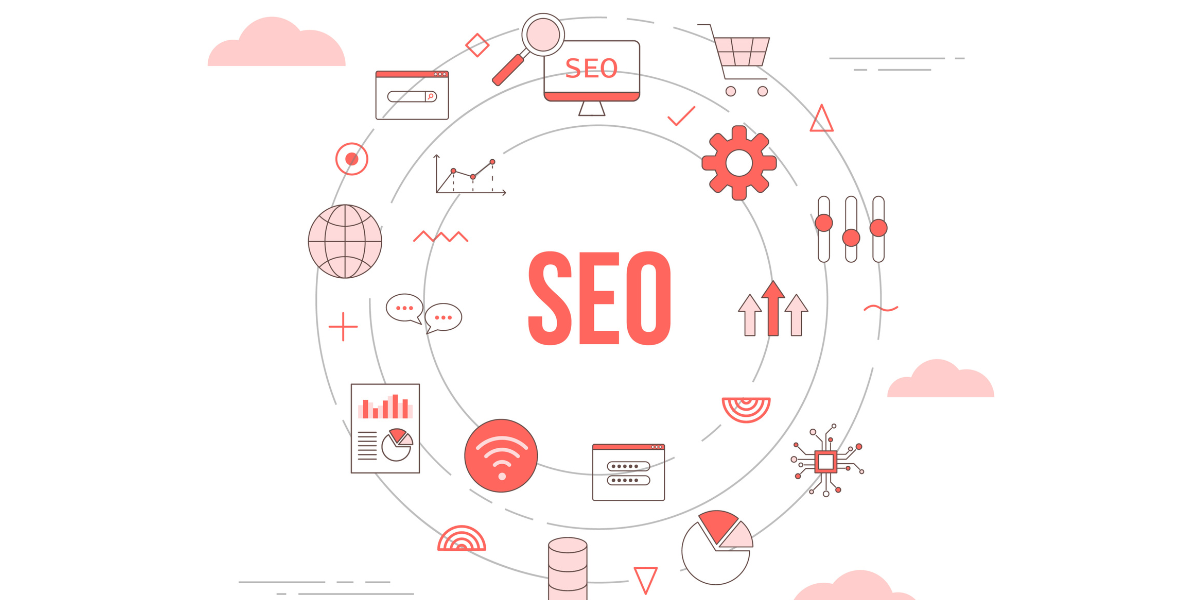
What Is SEO? A Beginner Friendly Introduction to Search Engine Optimization
Table of Contents
- What Is SEO (In Simple Words)?
- Why SEO Matters for Businesses in 2025
- How Search Engines Actually Work
- The 3 Main Types of SEO
- A Real-Life Example: How SEO Helps a Local Business
- Beginner SEO Mistakes to Avoid
- FAQs
1. What Is SEO (In Simple Words)?
Search Engine Optimization (SEO) is the process of improving your website so it appears higher on Google when people search for things related to your business.
If someone types:
“best chiropractor near me”,
Google shows a list of websites. The websites at the top didn’t get there by accident — they used SEO.
SEO is about three things:
- Making your website easy for Google to understand
- Publishing content people are searching for
- Making sure your website is trustworthy, fast, and user-friendly
If your site is better optimized than competitors, you appear higher — and higher rankings mean more traffic, more leads, and more customers.
2. Why SEO Matters for Businesses in 2025
SEO brings free, long-term traffic
Paid ads stop the moment you stop paying. SEO keeps working for months or years after you publish content.
People trust Google’s organic results more than ads
Most users skip ads and click on the first organic results.
Users search for everything
From:
- “best gym in Tampa”
- “affordable salon suites Loudoun”
- “car wraps near me”
- “loan for investment property”
…every business benefits from showing up on Google.
SEO builds brand authority
If your website keeps showing up for many keywords, people automatically trust you more.
SEO increases conversions
People who search typically have buying intent. Rank well → get leads → get sales.
3. How Search Engines Actually Work
Search engines work through three major steps:
1. Crawling
Google sends “bots” to scan your website pages.
2. Indexing
Google stores your content in its database.
3. Ranking
Google decides which page appears on top based on:
- Relevance
- Quality
- Speed
- User satisfaction
- Trust signals (backlinks, reviews, authority)
If Google can’t crawl or index your site, you’ll never rank — no matter how good the content is.
4. The 3 Main Types of SEO
A. On-Page SEO
Everything you do on your website:
- Writing content
- Using keywords naturally
- Optimizing titles & meta descriptions
- Internal linking
- Formatting using H1, H2, H3 tags
- Adding images with alt text
This helps Google understand what your page is about.
B. Off-Page SEO
Everything that happens outside your website:
- Backlinks from other sites
- Guest posts
- Social signals
- Brand mentions
- Google Business Profile improvements
These improve your website’s trust, which boosts rankings.
C. Technical SEO
Behind-the-scenes factors:
- Website speed
- Mobile responsiveness
- SSL (HTTPS)
- Sitemaps
- Robots.txt
- Site structure
- Core Web Vitals
This ensures Google can crawl + index + rank your site properly.
5. Real-Life Example: How SEO Helps a Local Business
Imagine a business:
“Salon Suites Florida”
Without SEO:
- The website gets little traffic
- People don’t know it exists
- Competitors show up first
With SEO:
- They rank for “private salon suites Loudoun”
- They appear on Google Maps
- They publish blogs targeting local keywords
- They get leads from organic searches
- Bookings increase every month
SEO creates momentum.
Momentum creates sales.
6. Beginner SEO Mistakes to Avoid
Mistake 1: Forcing keywords
EXAMPLE:
❌ “Our salon suites Loudoun salon suites Loudoun best affordable salon suites Loudoun.”
Google sees that as spam.
Mistake 2: Ignoring search intent
If someone searches:
“how to wrap a car with damaged paint”
They don’t want:
❌ a sales pitch
They want a guide → THEN a soft CTA.
Mistake 3: Having thin, low-quality content
Google ranks content that solves the searcher’s problem clearly.
Mistake 4: No internal linking
Internal links help Google understand your content structure.
Mistake 5: Slow website
Speed affects rankings, bounce rates, and conversions.
7. FAQs
1. How long does SEO take to work?
Most websites see results in 3–6 months, depending on competition and quality of work.
2. Is SEO better than paid ads?
SEO gives long-term results. Ads give instant results. Together, they are powerful.
3. Do small local businesses need SEO?
Yes — local searches like “near me” are the biggest driver of calls, visits, and bookings.
4. Is SEO difficult for beginners?
SEO is easy once you understand the basics. The hard part is consistency.
5. Can I learn SEO without technical skills?
Absolutely. Most SEO is content, optimization, and basic website improvements.
Ready to Improve Your SEO? Get a Free Consultation from KallistoTech
If you want expert help growing your rankings, traffic, and leads, our team at KallistoTech offers powerful, data-driven SEO services tailored for businesses of all sizes.
We handle everything — keyword research, content strategy, technical SEO, local SEO, backlink building, and full website optimization.
Book a FREE SEO consultation today and we’ll review your website, identify growth opportunities, and create a custom roadmap to increase your visibility on Google.
Visit KallistoTech.com or contact us to get started.





















